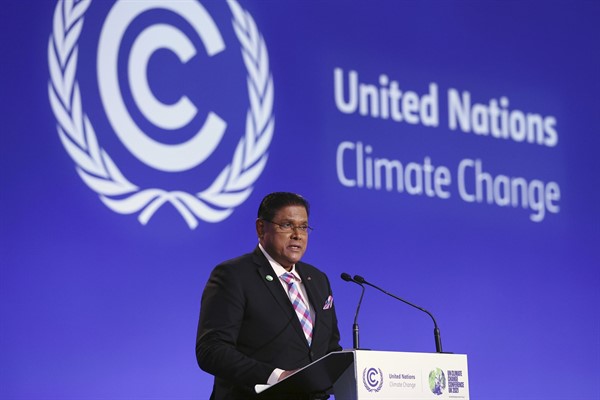Suriname and Guyana find themselves at the forefront of a dilemma for developing countries endowed with hydrocarbon resources, one that will only become more challenging as the climate crisis worsens: how to balance their development needs with their climate commitments. Fortunately, both countries might be able to achieve the seemingly mutually exclusive goals of alleviating poverty while respecting their commitments under the Paris Climate Agreement. The key lies in their forests.
Both Suriname and Guyana are desperately poor, with poverty levels at 47 percent and 36 percent respectively. Both are also in the early stages of developing what appear to be vast oil reserves, with production having begun in Guyana in late 2019, and Suriname likely to bring its reserves online by 2025.
In both countries, however, the nascent oil industry already faces criticism on environmental and climate change grounds, which are becoming increasingly pressing issues. Guyana’s fishing industry is already feeling the impact of warming waters, which are driving fish away from the country’s shores. Much of the country is also low-lying and vulnerable to floods and rising oceans, with the capital, Georgetown, sitting below sea level. Suriname faces many of the same problems, with most of its cultivated land on the coastal plain, where it is subject to increasingly devastating floods caused by climate change.

